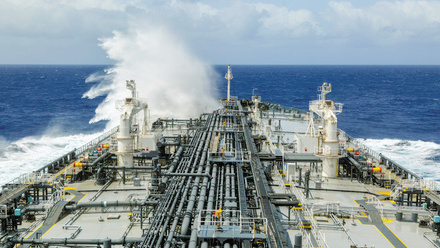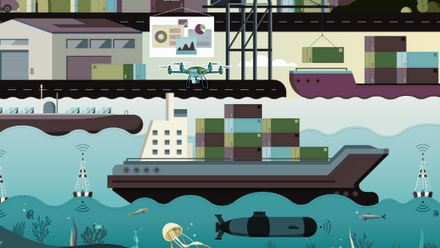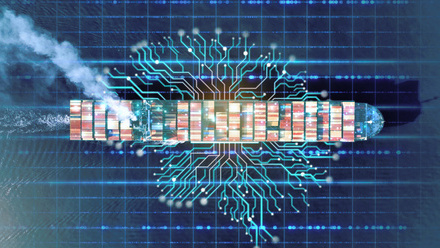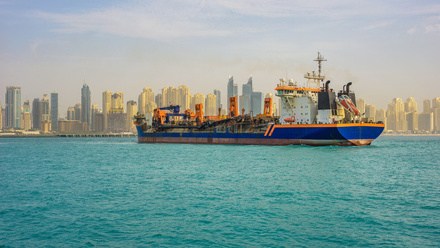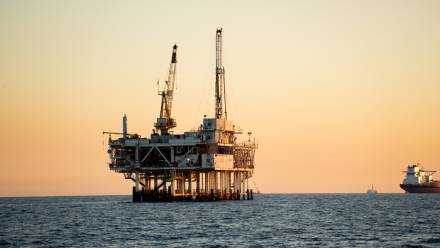Artificial intelligence in maritime transport
IMarEST Fellow argues AI needs to be introduced into seafarer training programmes.
The maritime transport sector is currently experiencing a seismic shift, driven by the rapid evolution of digital technologies. This transformation is not merely an extension of traditional practices; it is a fundamental rethinking of how mariners prepare for their roles amidst the burgeoning capabilities of artificial intelligence (AI).
As the adoption of AI becomes increasingly prevalent in offshore operations, navigation, vessel management, and risk assessment, there is an urgent need to integrate this discipline into seafarer training programmes. Recent research indicates that AI is becoming an indispensable mechanism for enhancing safety and efficiency at sea –the implementation of machine learning algorithms and comprehensive data analytics has proven essential in improving the accuracy of risk assessments on maritime vessels, for example.
These technologies offer seafarers enhanced predictive capabilities regarding hazardous situations, the optimisation of crew operations, and a considerable reduction in accident potential. This shift is particularly critical in the offshore sector, where environmental conditions can be extreme and unpredictable.
The areas of AI application in maritime transport already being employed across various areas in the industry include:
Autonomous vessel control: the advancement of drone ships and automated navigation systems allow vessels to operate with reduced human intervention, increasing both efficiency and safety.
Monitoring the technical condition of equipment: AI can predict equipment failures before they occur, allowing for timely maintenance and thereby reducing downtime and operational costs.
Route optimisation: AI enables the development of smarter routeing solutions that minimise fuel consumption and enhance overall environmental stewardship by reducing emissions.
Real-time meteorological data analysis: by integrating real-time weather data analysis, AI systems can aid in decision-making processes, enhancing the safety and reliability of maritime operations.
These innovations necessitate that modern seafarers cultivate not just traditional seamanship skills but also a solid understanding of AI technologies, including their principles, applications, and limitations.
To adapt traditional training programmes in light of rapid advancements in the maritime sector, existing programmes require significant work to prepare graduates for the complexities of modern maritime operations. The proposed discipline of ‘Artificial intelligence in maritime transport’should become a cornerstone of maritime education for several compelling reasons:
Foundational knowledge of AI principles: formal education in data analysis, machine learning algorithms, and their implications on decision-making equips seafarers with the crucial skills to navigate modern technologies. Understanding these concepts not only enhances their operational proficiency but also fosters a culture of innovation within the industry.
Enhanced safety protocols: by training seafarers in AI-driven risk assessment methodologies, they will be better positioned to identify potential threats proactively. This is particularly essential in the offshore sector, where the margin for error is minimal and proactive risk management can save lives and resources.
Cost reduction and resource optimisation: seafarers educated in AI applications can interact more effectively with sophisticated ship management technologies, leading to significant reductions in operational costs. Their proficiency in this technology allows for more streamlined operations and more efficient resource allocation.
In conclusion, integrating AI into maritime curricula presents two notable advantages. Increased graduate competitiveness (the modern labour market increasingly demands professionals who are adept at utilising cutting-edge technologies), and adaptability to future trends (as the maritime industry continues to evolve, so too must the skillsets of those who navigate its waters).
By focusing on AI, it not only reflects the realities of modern maritime operations but also prepares the next generation of maritime professionals for the intricacies of their roles in an increasingly digital world. By embracing this change, the maritime community positions itself to lead in safety, efficiency, and sustainability.
This article represents the views of Associate Professor Sergey Karianskyi, PhD, CEng, CMarEng, FIMarEST, Chairman of the IMarEST Odessa Branch, and not necessarily those of IMarEST.
If you want to discover more about AI in the maritime industry, connect with IMarEST’s Artificial Intelligence in the Maritime Domain Special Interest Group.
Tell us what you think about this article by joining the discussion on IMarEST Connect.
Newsletter image: Professor Sergey Karianskyi. Credit: self. Main image: concept of AI in the maritime industry. Credit: Shutterstock.

